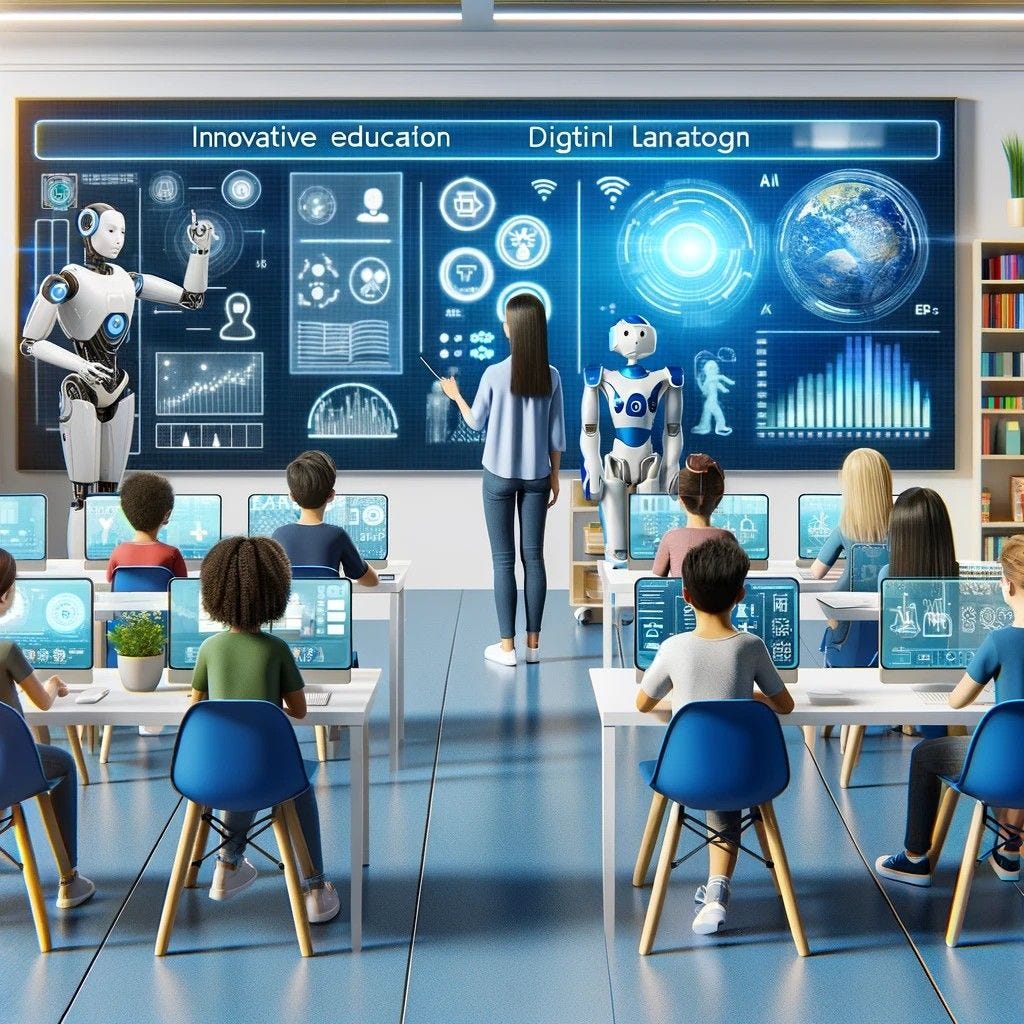Discover the Top AI Education Apps and Platforms for Enhanced Learning
In today’s rapidly evolving world, artificial intelligence (AI) has become a game-changer in various sectors, including education. AI education apps and tools have the potential to revolutionize the way we learn, making it more efficient, personalized, and engaging. Whether you’re a student, teacher, or simply someone who wants to expand their knowledge, AI-powered learning tools can help you become the smartest person on the planet.
We strongly recommend that you check out our guide on how to take advantage of AI in today’s passive income economy.
Table of Contents
AI Tools for Explanation and Simplification
One of the most impressive AI education apps is “Explain Like I’m 5” (ELI5), which simplifies complex concepts and breaks them down into easily understandable terms. ELI5 is an AI-powered tool that can explain anything to you as if you were a five-year-old, making it an invaluable resource for students and teachers alike.
To use ELI5, simply choose your preferred language and level of complexity (e.g., “pretty dumb” or “pretty smart”), and ask the AI to explain a topic or concept. For example, if you ask ELI5 to explain artificial intelligence, it might respond with a simple, easy-to-understand definition like this:
“Artificial intelligence is like when you try to make a computer or a robot think and act like a human. It’s not as smart as a real person, but it can still do some pretty cool things, like play games, answer questions, and help you with your homework.”
ELI5 is just one example of the many AI education apps that can help simplify complex subjects and make learning more accessible for everyone.
AI-Powered Quiz Generation
Another way AI is revolutionizing education is through the creation of AI-generated quizzes and assessments. Tools like Quiz Gecko and Yippity allow teachers to easily create quizzes and tests based on articles, websites, or other educational content.
To use Quiz Gecko, simply paste a URL or upload a file containing the content you want to create a quiz from. The AI will analyze the text and generate multiple-choice, true/false, short answer, or fill-in-the-blank questions based on the information provided. You can customize the difficulty level and export the questions for use in your classroom or online learning platform.
Similarly, Yippity generates quizzes automatically from your notes or any URL. Just enter your content, and the AI will create a quiz with questions and answers extracted from the provided material. These AI education apps save teachers time and effort while ensuring that students are being tested on relevant and up-to-date information.
AI Assistants for Academic Research
For students and researchers, AI-powered tools like Genei and ScholarAI can significantly streamline the research process. These AI education apps help users find, organize, and summarize relevant information from academic papers and other sources.
Genei, for example, allows you to upload documents, and the AI will extract the most important information, including keywords, abstracts, summaries, graphs, figures, and tables. The tool also helps with citation management and can even rephrase or expand upon your own writing.
ScholarAI is another powerful research assistant that uses AI to discover scientific articles via smart citations. You can search for citation statements, find experts in your field, and visualize connections between related articles and journals. This AI education app is like having a personal research assistant, saving you countless hours of manual searching and analysis.
AI-Enhanced Writing and Editing
Writing and editing are essential skills for students and professionals alike, and AI education apps can help improve these abilities. Tools like Quillbot and Trinka use artificial intelligence to assist with paraphrasing, grammar checking, plagiarism detection, and more.
Quillbot, for instance, can rephrase your text to make it more concise, fluent, and engaging. It also offers a grammar checker, plagiarism scanner, and citation generator to ensure your writing is error-free and properly attributed.
Trinka is another AI-powered writing assistant that helps you refine your grammar, check for plagiarism, and even find the perfect journal to publish your research. With features like auto-file editing and manuscript readiness checks, Trinka is an invaluable tool for anyone looking to improve their writing skills.
The Future of AI in Education
As AI continues to advance, we can expect to see even more innovative AI education apps and tools that will transform the way we learn. From personalized learning paths to virtual tutors and immersive educational experiences, the possibilities are endless.
However, it’s essential to remember that AI is not meant to replace human teachers or the value of traditional education. Instead, these tools should be seen as supplements that can enhance the learning experience and make education more accessible and engaging for everyone.
Conclusion
In conclusion, AI education apps and tools have the potential to revolutionize the way we learn and make us smarter than ever before. From simplifying complex concepts to generating quizzes and assisting with research and writing, these AI-powered tools are invaluable resources for students, teachers, and lifelong learners alike.
By embracing AI in education and leveraging the power of these innovative tools, we can unlock our full potential and become the smartest versions of ourselves. So, whether you’re a student looking to ace your exams, a teacher seeking to create engaging content, or simply someone who wants to expand their knowledge, AI education apps are here to help you on your journey towards becoming the smartest person on the planet.
FAQs:
Q1: What questions should I ask about AI in education?
A1: When exploring AI in education, consider asking the following questions:
- How can AI personalize learning experiences for individual students?
- What AI education apps and tools are available to enhance learning outcomes?
- How can AI assist teachers in creating engaging and effective educational content?
- What role can AI play in assessing student performance and providing feedback?
- How can AI bridge the gap between classroom learning and real-world applications?
Q2: What are the limitations of AI in education?
A2: While AI has the potential to revolutionize education, it also has some limitations:
- AI cannot fully replace the human touch and emotional intelligence of teachers.
- The effectiveness of AI in education depends on the quality and quantity of data available.
- AI may struggle to understand and adapt to the diverse learning styles and needs of all students.
- Implementing AI in education can be costly, and not all schools may have the resources to do so.
- There are concerns about data privacy and security when using AI in educational settings.
Q3: What are the challenges of AI in education?
A3: Implementing AI in education comes with several challenges, including:
- Ensuring equal access to AI-powered learning tools for all students, regardless of socioeconomic background.
- Training teachers to effectively use and integrate AI in their teaching practices.
- Developing AI systems that are free from bias and can adapt to diverse student populations.
- Addressing concerns about the impact of AI on teacher jobs and the role of human educators.
- Overcoming technical limitations and ensuring the reliability and accuracy of AI-generated content.
Q4: How does AI help students in education?
A4: AI can help students in education in several ways:
- Personalizing learning experiences based on individual strengths, weaknesses, and learning styles.
- Providing instant feedback and guidance, allowing students to learn at their own pace.
- Offering access to a wide range of educational resources and AI education apps.
- Facilitating collaboration and communication among students through AI-powered platforms.
- Preparing students for a future workforce that will increasingly rely on AI and automation.

We strongly recommend that you check out our guide on how to take advantage of AI in today’s passive income economy.




